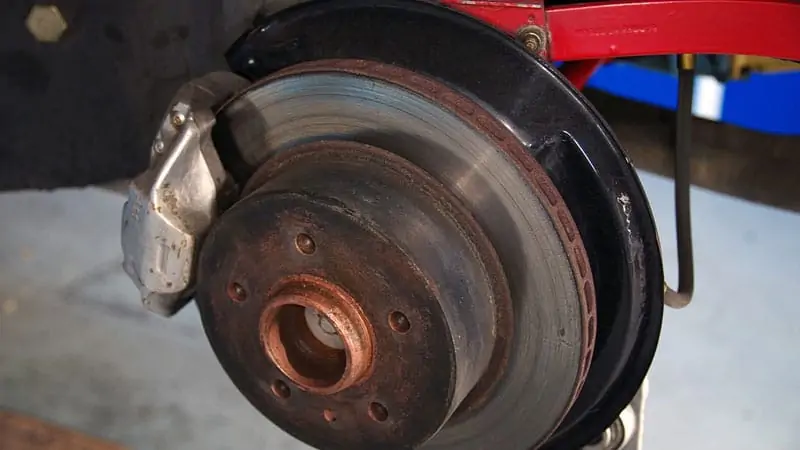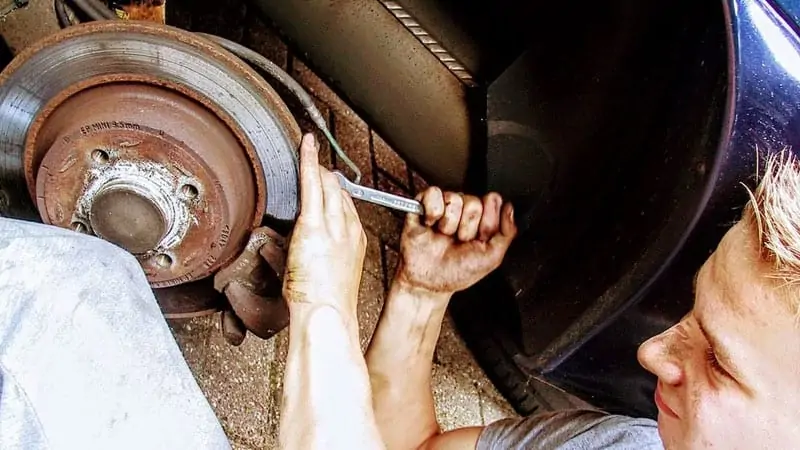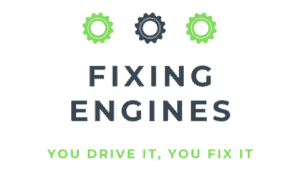Brakes operating well is something that is often taken for granted with a car. However, once the brakes start having issues, you realize just how important a function they play. So why does your car brake by itself randomly while driving?
The most common cause of a car braking by itself is brakes that are sticking. This can be due to damage, excessive heat or cold, or signs it is time for a brake service. Brakes need to be maintained just like most other components on the car.
I’ll run you through how brakes work and warning signs that they’re having issues. We’ll look at what is needed to keep your brakes running smoothly and the steps you can take to ensure that your brake issues are fixed quickly.
Do Car Brakes Need to Be Cleaned to Work?

Brakes are dealing with a lot of force and pressure and need to be lubricated to function properly. Driving will tend to strip the brake pads, especially when in wet conditions.
Corrosion will build up without adequate lubrication and the brake’s effectiveness will drop significantly.
Insufficient lubrication can result in the brake pads getting stuck together as they heat up. This can feel like you are driving with both the gas and brake pedal constantly pressed down. This is terrible for both your brakes and engine health.
In order to remedy this issue, normally the whole brake system must be cleaned and relubricated. This can be tricky to do if you are relatively inexperienced with car repairs and it may be time to take the car in for a full service.
Why Do Brakes Stick?
If the brakes are sticking this can seem like the brakes are engaging without you pressing the pedal. Brakes tend to stick if they are getting too hot and binding together.
Another common cause is a faulty brake booster. In order to apply a lot of power to braking, there is a system that involves brake fluid and pressure differentials. Leaking brake fluid or low fluid levels causes this system to malfunction.
This can mean that air bubbles or other issues cause the brake to engage even when the brake pedal has not been pushed. Fixing such issues with the brake fluid is a difficult task to do by yourself and if you suspect such issues, best to get an expert to do a full check.
How Do I Know I Have Bad Brakes?
One of the biggest warning signs is squealing or grinding noise when using your brakes. Built-in to brake pads are small amounts of steel. These are only exposed once the brake pad is worn down to a certain point.
After this amount of wear, once the brakes are engaged you will hear the squealing sound as the pad is pushed onto the steel.
Vehicle diagnostic systems will display a red or yellow indicator on your dashboard lights if an issue is detected with the brakes. Whether you have disc or drum brakes, these systems have sensors designed to notice issues with brake pad engagement or rotor issues.
For drum brakes in particular, waste material from engaging the brakes will build up in the drum. This is also likely to cause squealing sounds. Drum brakes, especially those on the rear, can be quite complex to put back together after cleaning.
Ensure you research your particular model and brake type to find out common issues with fixing brakes before removing anything.
Rocks or dirt can kick up from the road surface into the brakes. This means that when you press the brake pedal there is an audible sound, often similar to grinding.
In order to get at the accumulated junk, it’s often easiest to just remove the wheel and disassemble the brake system completely. Given the low tolerance for deviation, junk anywhere near the calipers or pads can cause your brakes to apply randomly.
The rotors are the large discs that the brake caliper presses on. Any defects in the rotor can cause the steering wheel to vibrate when the brakes are applied. This rotor can get warped or bent due to wear and tear and excessive heat.
In colder climates, road salt and other causes mean rust accumulates on the rotors. Fixing bent rotors is best left to a professional who has the appropriate tools. These defects mean the rotor will touch the brake pads as it rotates, simulating braking.
Finally, if a vehicle pulls to one side upon breaking this is a sign of a failed brake system. This is generally due to one set of brakes on a single wheel failing in a material way, such as the caliper becoming seized or other serious failures.
How Do I Fix Bad Brakes?

Your end goal will involve disassembling the brake unit and cleaning it thoroughly. This will allow all the parts to get fully cleaned and enable you to spot issues with individual components.
Often the only way to properly undertake a check and clean of brakes is to remove the wheels. This means you’ll need to get the vehicle up on a hoist or jack.
After that, all components including the brake calipers, sliders, pads, and rotors need to be inspected. Visual inspection of the rotor especially needs to check for damage and if necessary the rotor will need to be replaced.
Specialized cleaning products for brake pads should be applied to the cleaned parts. You can purchase such products as CRC Brakleen Brake Parts Cleaner from Amazon which come in an easy-to-use spray can.
Even small particles of grime or dirt can cause issues so don’t rush the cleaning. This process can take a few hours by an experienced mechanic and so you should budget your repair time appropriately and not expect to use the car for at least a day.

